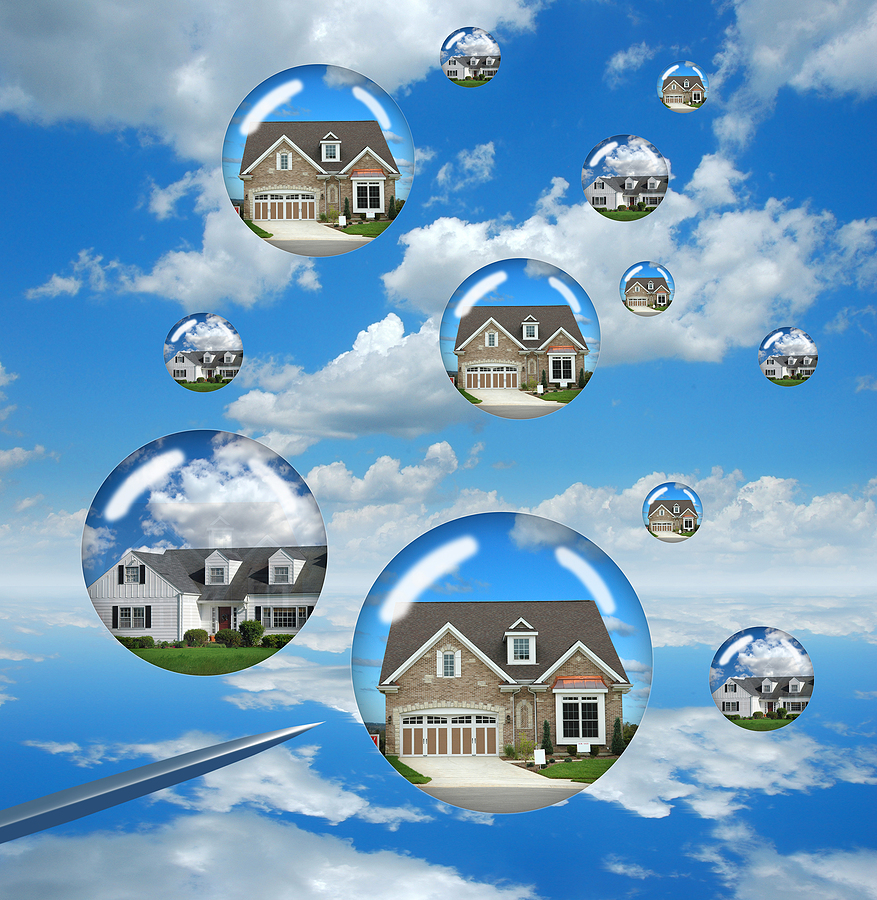In this white-hot real estate market, some fear the U.S. may be headed toward a second housing crisis similar to the one that sent the country into a deep recession in 2008.
Experts argue that’s unlikely due to the differences between the 2008 market and today. The likelier scenario, many are positing, is not the bursting of a market bubble, but rather a more conventional cooling-off and gradual balancing of prices.
The 2008 crisis was precipitated by a broadly complex variety of interrelated factors. Chief among them was what’s known as “subprime lending,” where homebuyers were given loans they were unlikely to maintain given their financial situation. Such loans are often accompanied by provisions such as high interest rates to account for the higher loan risk, which can further hamper a loanee’s ability to pay the principal and interest.
The present housing market is markedly different. Interest rates are historically low, which has helped bring new buyers into the market. But sky-high housing prices seen across the country have created something of a natural barrier for many would-be homeowners that wasn’t as present in the first decade of the 21st century.
Longtime financial analyst Bill Conerly argued in Forbes this week that the housing market will cool probably around next year when interest rates rise, and that a 2008-style bubble burst won’t be a part of the recalibration.
“There is no bubble to burst,” Conerly said, arguing the current boom “produced some frantic buying, bids in excess of asking prices, and plenty of worry among would-be homeowners. But this has not been a bubble.”
“A bubble is not simply rising prices, but demand not justified by fundamental economic factors,” he noted. “The key to the buying boom has been low mortgage rates plus a shift in desired housing type.”
CNN analyst Matt Egan makes a similar argument. The present frenzy, he noted, is “sparking fears that the United States is in the middle of another housing bubble that will end in a terrible crash.” But “today’s housing market is very different from the mid-2000s bubble that wrecked the economy,” he argued, with the key driver being a “massive shortage of homes” rather than easy lending practices.
“The other key difference is that banks, home buyers and regulators appear to have learned a painful lesson about the pitfalls of overborrowing,” he argued further.
When and how the current market will slow down is anybody’s guess. Home prices jumped nearly 20 percent over the past year and continue to rise modestly month-over-month. There are signs the market may be cooling off to some degree, but for now high prices and low stock look to be the norm for the foreseeable future.
Lance Lambert at Forbes points to those factors when he argues against the “Back to 2008” theory.
“The foreclosure crisis following the 2008 housing crash was so bad, in part, because tens of millions of financially strained homeowners were underwater (meaning a borrower’s remaining mortgage balance is greater than the home’s value) and had no choice but foreclosure. That’s unlikely to be the case for financially strapped homeowners this year. These homeowners are likely sitting on sizable home equity (home value minus the outstanding mortgage), and if they can’t repay the mortgage they can simply sell into the currently red-hot housing market.”
The good news is the broad consensus is that, when the market finally does settle down, it will not be in the kind of catastrophic crash seen in 2008 that wiped out so much wealth and upended the nation for several years.
